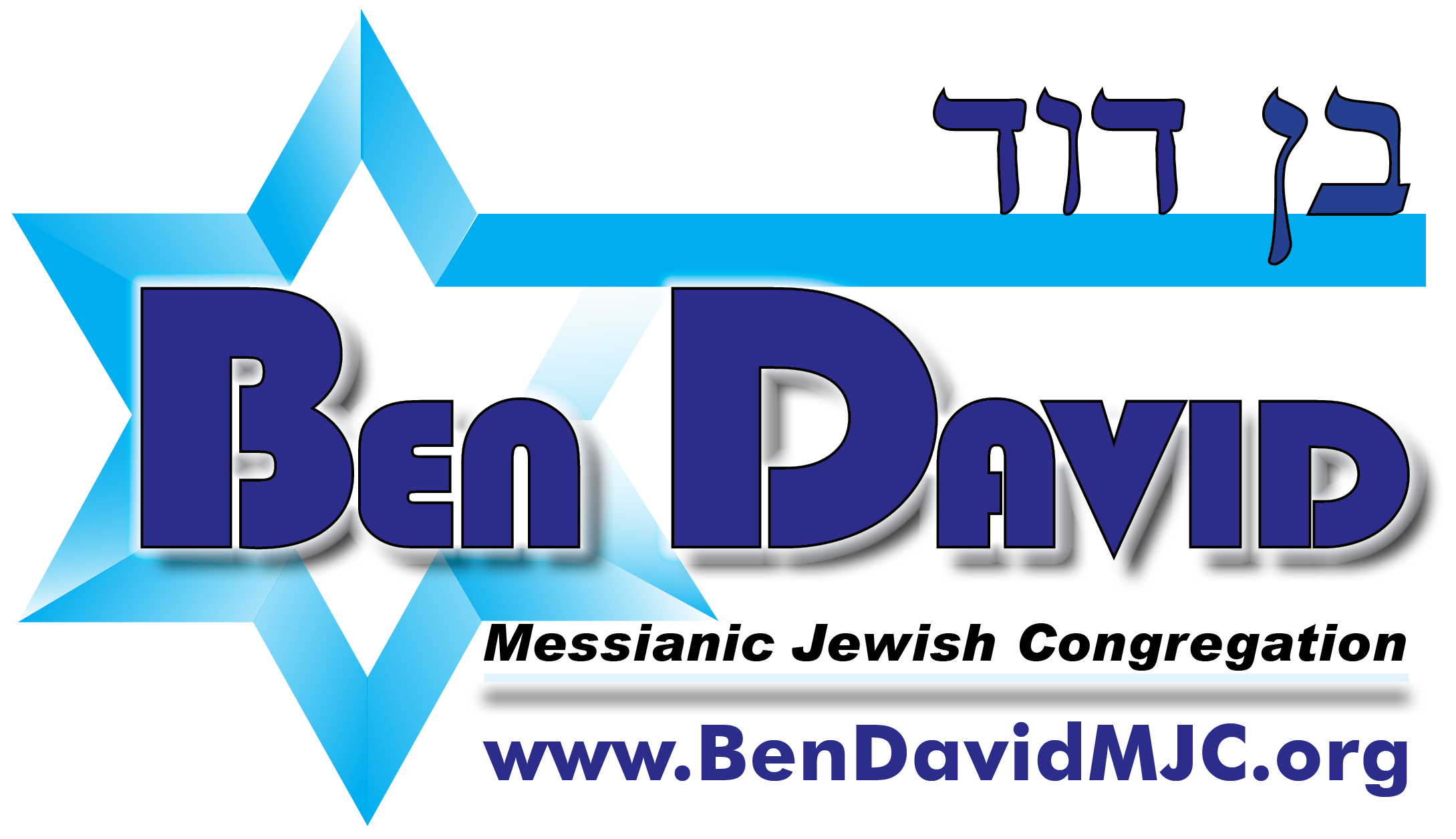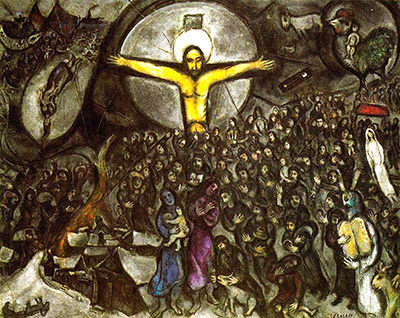Torah: Shemot 25:1 – 27:19; Haftarah: 1 Kings 5:26 — 6:13
"THE MISHKAN — a Resting Place for God's Presence"
With the exception of the incident of the Golden Calf, the rest of the Book of Shemot is devoted to the preparation for and the construction of the Mishkan, or the Tabernacle (literally, the Dwelling Place).
This Parashah starts with the LORD instructing Moshe regarding the taking of an offering from the people for the construction of the Mishkan, its utensils and the priestly garments: “And the LORD spoke to Moshe, saying, ‘Speak to the people of Israel, and let them take for Me a portion; from every man that gives it willingly with his heart you shall take My portion. And this is the offering which you shall take from them; gold, and silver, and bronze, and blue, and purple, and scarlet, and fine linen, and goats’ hair, and rams’ skins dyed red, and goats’ skins, and shittim wood, oil for the light, spices for the anointing oil, and for sweet incense, onyx stones, and stones to be set on the ephod, and on the breastplate. And let them make Me a sanctuary; that I may dwell among them.’” Shemot 25:1-8
This passage seemingly presents a bit of a contradiction. On the one hand God asks the people to take the offering, and on the other He says that the offering should be given willingly. The rabbis concluded that the “them” who are to take, are the leaders of the people, thus God gives the commandment to the leaders to “take” or to request an offering from the people, but the giving should be voluntary. The leaders had to take on the responsibility to inspire the people to give and the people needed to have a tangible purpose in order to exercise their giving nature. The word “offering,” or “portion,” used here is the Hebrew word “terumah” which is defined as “My portion,” God’s portion, therefore, terumah is used only in conjunction with giving to the LORD, meaning that this “portion” was an offering from their best possessions and it was to be willingly set aside for a higher purpose, in this case for the building of the Mishkan.
The response of the people to the requests of the leaders was overwhelming, as we read further in chapter 36. The people were so eager to have a share in the building of a place for the Shechinah – God’s Presence – that the workers had to appeal to Moshe to halt the contributions. May we all get inspired by their actions so, we, too, may be zealous to give the absolute best for God's work and His Kingdom.
The redemption from Egypt was not complete with the physical departure from that land of enslavement, nor was it complete even with the giving of the Ten Commandments. The Exodus had not achieved its purpose until the heights that the nation had achieved temporarily at Sinai were made a permanent part of their existence by means of the Mishkan, the Tabernacle, which, as a whole and in its many parts, was symbolic of the experience at Mount Sinai. It was from the Holy Ark that God spoke to Moshe, just as He had spoken to him from atop Mount Sinai, when giving the Torah.
The Tabernacle was intended to be the place to which every Jew would go and elevate himself spiritually. The function of the Tabernacle in the Wilderness was carried forward to the Temple in Jerusalem. That new Sanctuary represented Israel's obligation to sanctify itself, to be holy, and to be a light to the nations. When the nation carried out that responsibility, God responded by dwelling among them. But Israel faltered and did not fulfill this God given responsibility of a Holy Nation, many times rejecting God and His commandments. Therefore, God, in His desire to be with His people, made a promise that He will come and speak directly to them by dwelling in another kind of a Temple. Through the prophet Yeshayahu He promised: “Therefore Adonai Himself shall give you a sign; Behold, an almah (virgin) shall conceive, and she will bear a Son, and shall call His Name Immanu-El (God is with us).” Isaiah 7:14
The sign was not that a young woman will conceive a child, this is a natural phenomenon that happens every day in this world, but that a virgin will conceive a child and that that child will be known among His people as the Son of God. Please read Proverbs 30:4 and answer the riddle from it - I am sure you know the answer. In the fullness of time, the Son of God came down and dwelt among His people in a form of a man called Yeshua, who told the Jewish people: “But I say to you that something greater than the Temple is here.” Mattityahu 12:6 A puzzling statement for the Jews who regarded the Temple as the most sacred thing on earth, but a fulfillment of the prophesy given by Haggai in 2:9, "'The latter glory of this house will be greater than the former,' says the LORD Tzevaot (the LORD of Hosts), 'and in this place I will give peace,' declares the LORD Tzevaot." The second Temple was far less magnificent of a building than the first, therefore the greater glory was given not by stones and gold but by the presence of God incarnate, Yeshua. But if you say, this "Son of God" is not a Jewish concept but a latter invention, please re-read the words of the one considered the wisest man that ever lived, Solomon, who wrote the riddle in Proverbs 30:4: "Who has ascended into heaven and descended? Who has gathered the wind in His fists? Who has wrapped the waters in His garment? Who has established all the ends of the earth? What is His name or His Son's name? Surely you know!" Yes, God has a Son, who participated in the act of creation and is one with the Father, because the answer to Solomon's riddle could be either the Father or the Son — one God, one in nature, but two distinct Persons. Just as Yeshua declared: "I and the Father are one." John 10:30
And because Yeshua was God, He could reveal to His talmidim the plan of God the Father: “And He said to them, ‘Do you not see all these things [the buildings of the Temple]? Truly I say to you, not one stone here will be left upon another, which will not be torn down.’” Mattityahu 24:1-2 “The Judeans then said to Him, ‘What sign do You show us as Your authority for doing these things?’ Yeshua answered them, ‘Destroy this temple, and in three days I will raise it up.’ The Judeans then said, ‘It took forty-six years to build this Temple, and will You raise it up in three days?’ But He was speaking of the temple of His body. So when He was raised from the dead, His talmidim (disciples) remembered that He said this; and they believed the Written Word and the word which Yeshua had spoken.” Yochanan 2:18-22
What "Written Word" is Yochanan referring to? The Brit Hadashah was not written yet. After Yeshua rose from the dead the talmidim believed the Tanakh, the Scriptures of that time, and understood what Isaiah, Haggai and Solomon wrote, not a new theology but a very Jewish one. They also believed and understood the words of Yeshua, that the physical Temple in Yerushalayim would be destroyed, that the Mishkan had fulfilled its purpose and was no longer needed because of something greater came. They understood that the earthly Temple, in all its splendor, will pale in comparison with the heavenly one. They understood that in the spiritual realm, the exodus from the world of sin is not complete until one enters into a new temple, the fellowship of the body of believers, paralleling the earthly Mishkan. We cannot make our spiritual journey on this earth by ourselves. We need to come together and be spiritually uplifted in this new temple not built with human hands this time, but “having been built on the foundation of the apostles and prophets, Messiah Yeshua Himself being the corner [stone,] in whom the whole building, being fitted together, is growing into a holy temple in the Lord, in whom you also are being built together into a dwelling of God in the Spirit.” Ephesians 2:20-22
The Jewish people valued the earthly Temple for its ability to give them a spiritual uplifting and contributed to it abundantly, how much more should we value our spiritual temple — the body of believers — and contribute to its growth with our finances, our time and our talents.
Shabbat Shalom.



